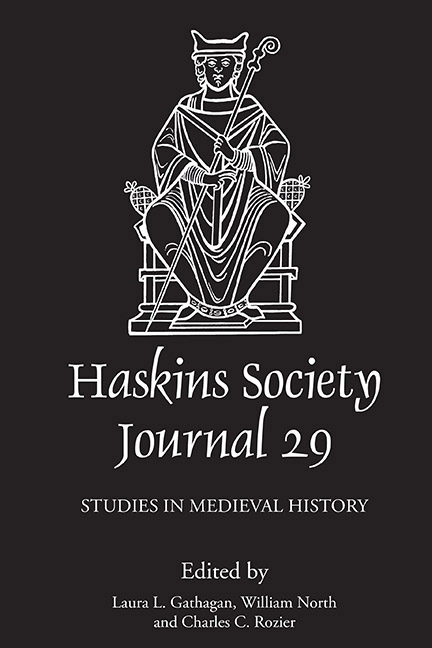Book contents
- Frontmatter
- Contents
- List of Figures and Tables
- Editors’ Note
- Abbreviations
- 1 The Longue Durée of a Symbolic System: Mounted Warriors and Horses in the Chronicon Salernitanum
- 2 Revolution(s) of Writing: Northern France, Tenth–Fourteenth Centuries
- 3 Slave or Free: The Aehtemann in Anglo-Saxon Rural Society
- 4 Norman Ducal Property in the Tenth and Eleventh Centuries: A Spatial and Chronological Analysis
- 5 The Codex Wintoniensis in its Twelfth-Century Context
- 6 The Carmen Ceccanense: A Neglected Source for the End of the Norman Kingdom of Sicily, Introduction – Edition – Translation
- 7 Succession and Interregnum in the English Polity: The Case of 1141
- 8 Crusading Participation in Normandy and its Borderlands: The Evidence from the Old French Traditions of the First Crusade
- 9 The Domesday Controversy: A Review and a New Interpretation
9 - The Domesday Controversy: A Review and a New Interpretation
Published online by Cambridge University Press: 15 October 2019
- Frontmatter
- Contents
- List of Figures and Tables
- Editors’ Note
- Abbreviations
- 1 The Longue Durée of a Symbolic System: Mounted Warriors and Horses in the Chronicon Salernitanum
- 2 Revolution(s) of Writing: Northern France, Tenth–Fourteenth Centuries
- 3 Slave or Free: The Aehtemann in Anglo-Saxon Rural Society
- 4 Norman Ducal Property in the Tenth and Eleventh Centuries: A Spatial and Chronological Analysis
- 5 The Codex Wintoniensis in its Twelfth-Century Context
- 6 The Carmen Ceccanense: A Neglected Source for the End of the Norman Kingdom of Sicily, Introduction – Edition – Translation
- 7 Succession and Interregnum in the English Polity: The Case of 1141
- 8 Crusading Participation in Normandy and its Borderlands: The Evidence from the Old French Traditions of the First Crusade
- 9 The Domesday Controversy: A Review and a New Interpretation
Summary
‘A result is given to us: the problem is to find cause and process’
(Maitland, Domesday Book and Beyond).The Problem
How and why was Domesday made? These questions matter, partly because the making of Domesday is one of most remarkable achievements of medieval government, and partly because it is essential to know how Domesday came into being before interpreting its precious contents. However, two basic problems make them difficult to answer. The first is historical: neither Domesday Book itself nor any other near-contemporary document addresses either question directly. We have some vital clues, most notably those given to us by the annals for 1085 and 1086 in MS E of the Anglo-Saxon Chronicle, an eye-witness account of the survey written by Bishop Robert of Hereford, the colophon to Little Domesday Book, the prologue to the collection known as Inquisitio Eliensis, and the text in Hemming's cartulary which records the identity of the Domesday commissioners for Worcestershire and the western circuit. These illuminate the Domesday landscape like lightning flashes in a nocturnal storm, giving sudden, partial glimpses of its contours, and after-images of features we can grope towards when darkness resumes – but they might easily have said more. For instance, if the author of the annal for 1085 had been moved to explain the substance of the careful thought and deep discussion which preceded the launch of the survey, or if the Great Domesday scribe had written a prologue describing when, how and why his work was undertaken, they might have saved a vast amount of scholarly effort. As it is, we can only infer how and why Domesday was made from the records it generated: these are the results from which cause and process must be found.
The second problem is historiographical. Put simply, an immense amount of scholarship has been invested in Domesday Book, but the resulting literature is as controversial as it is voluminous. At certain points in the long history of Domesday's history, agreement has broken out; sometimes it has even lasted long enough for a consensus to emerge; but sooner or later, controversy has tended to resume.
- Type
- Chapter
- Information
- The Haskins Society Journal 292017. Studies in Medieval History, pp. 225 - 293Publisher: Boydell & BrewerPrint publication year: 2018
- 1
- Cited by



